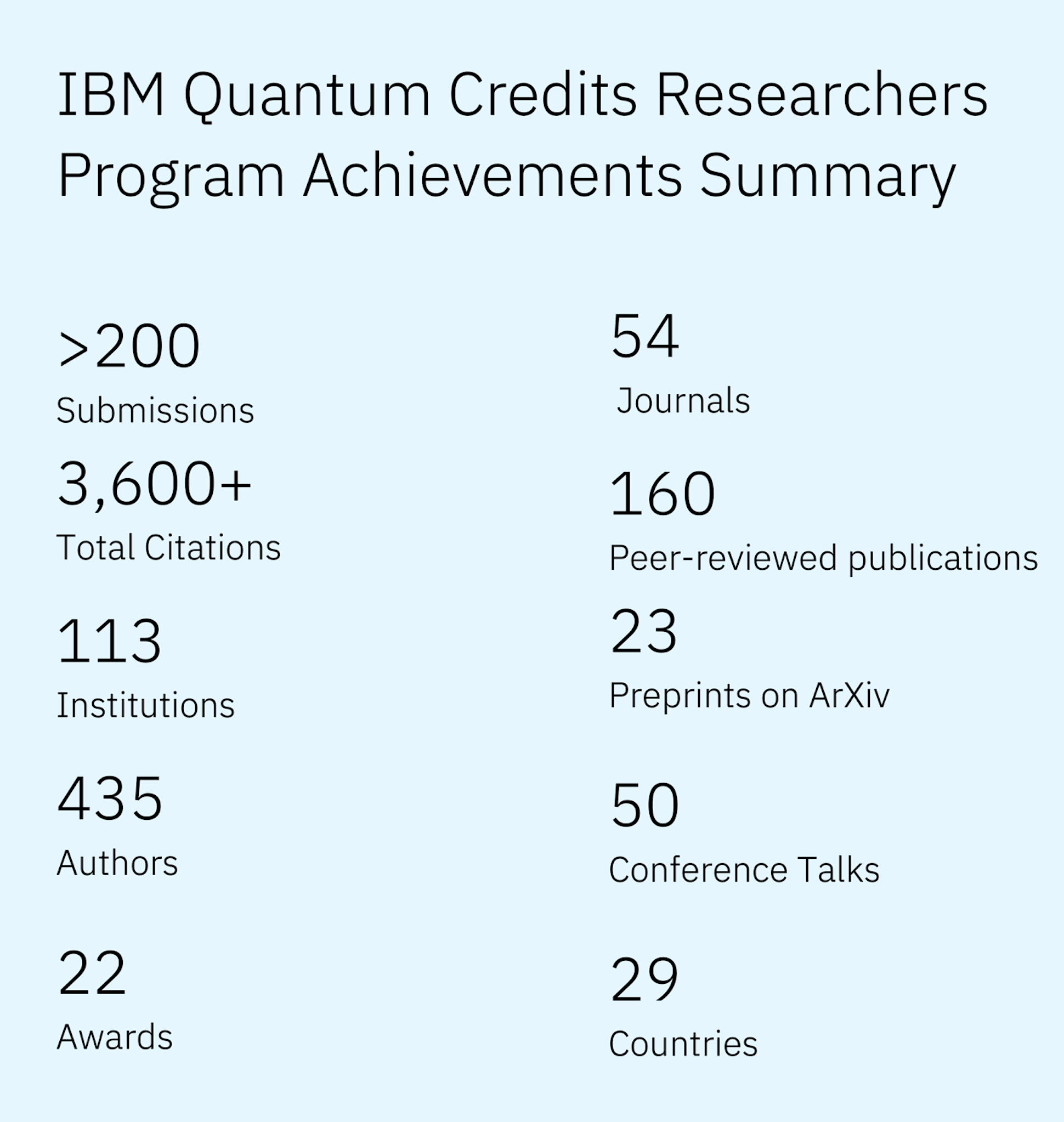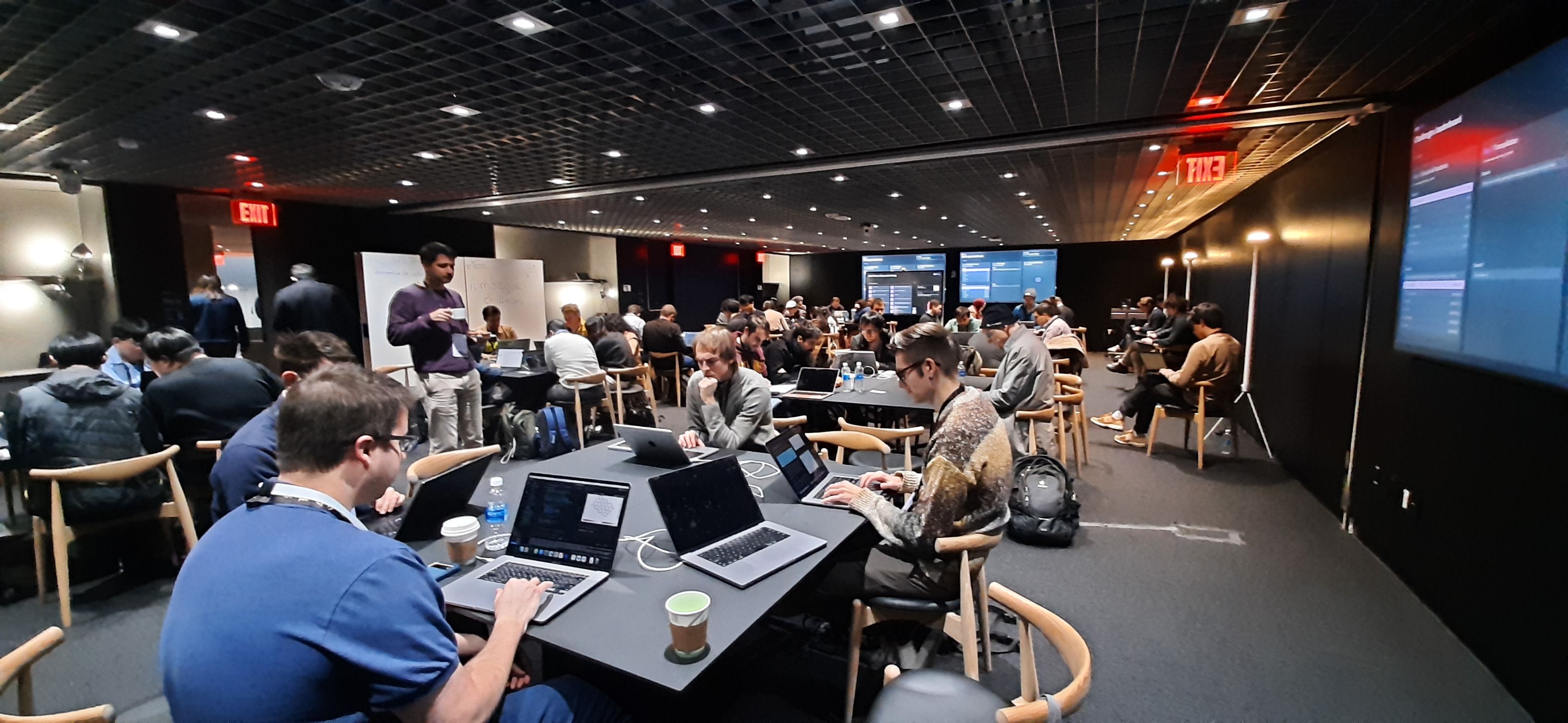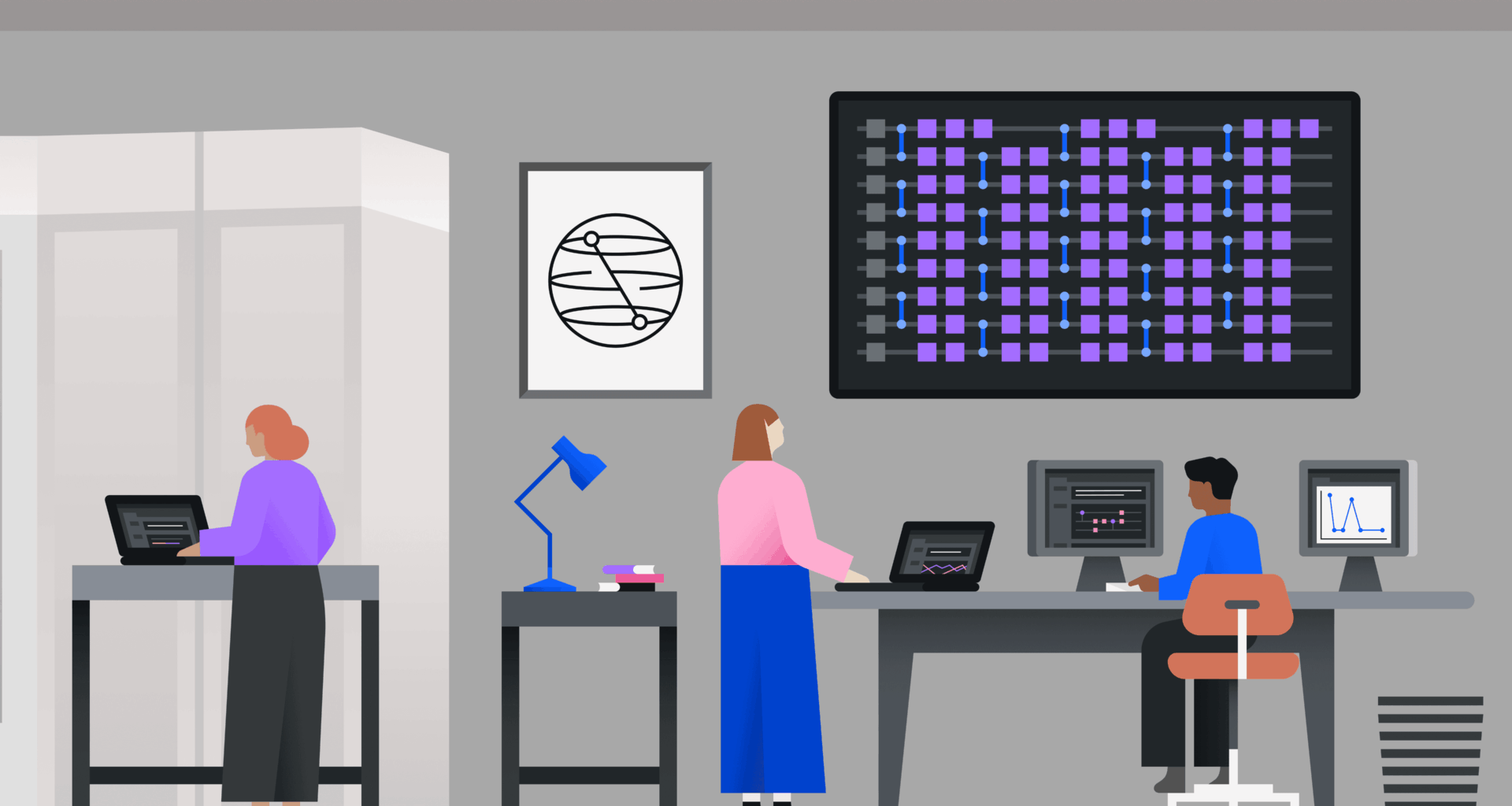The IBM Quantum® Credits program has migrated to the new-and-improved IBM Quantum Platform, and we’re celebrating by giving it some major upgrades. Are you a quantum researcher working on a project that deserves access to the latest IBM quantum software and hardware capabilities? If so, we invite you to submit your novel, utility-scale research proposal today for a chance at joining the IBM Quantum Credits program. Check the next section of this blog post for submission criteria and a link to the application form.
Formally founded in the summer of 2020, the IBM Quantum Credits program—previously known as the IBM Quantum Researchers Program—invites quantum researchers to apply for free access to IBM quantum computers. This access empowers the quantum community’s top researchers to pursue high-impact projects without worrying about barriers of cost and other constraints.
Now, as we move ever closer to the first demonstrations of quantum advantage, we’re making the Credits program even better by giving credit recipients access to cutting-edge software capabilities and the latest quantum hardware. These include utility-scale dynamic circuits and the forthcoming IBM Quantum Nighthawk with its square lattice, which will allow users to achieve a roughly 16x increase in effective circuit depth over its heavy-hex lattice predecessors.
Who should apply
The IBM Quantum Credits program emphasizes utility-scale research. Applicants are evaluated based on the novelty and quality of their idea, the feasibility of their project—which should ideally be completed within one year and 5–10 hours of compute—and their project’s potential to explore truly utility-scale problems that test the limits of classical methods.
Applicants are also evaluated for their ability to work productively on IBM quantum computers without external support. Once accepted into the program, researchers are given free rein to pursue projects at their own pace and on their own initiative. Do you have an idea that fits the criteria listed below? Apply here.
Requirements:
- Applicants must be among the top academic and professional researchers working to deliver significant and promising results with quantum computing
- Applicants must be tenure-track or permanent academic staff at a research institute
- Applicants cannot already have access to IBM Quantum computers beyond the Open Plan
Successful proposals typically:
- Focus on utility-scale problems (greater than ~30 qubits)
- Aim for high impact, cutting edge outcomes
- Would benefit significantly from hardware access
- Demonstrate scalable quantum methods and innovation
- Show clear progress within 5–10 hours of QPU time
Quantum researchers from all disciplines — including physics, chemistry, computer science, engineering, materials, and more — are welcome to apply.
Looking for inspiration for your research proposal? IBM has teamed up with quantum computing experts to produce strategic papers exploring potential use cases and problems of interest in application areas like healthcare, materials science, high-energy physics and optimization.
Why now?
The Credits program may have officially launched in 2020, but it is part of a tradition that extends all the way back to 2016, when IBM made history by putting the first quantum processor on the cloud.
From the beginning, IBM has been committed to creating valuable tools to enable a new era of quantum exploration—one in which researchers, scientists, and engineers around the world can all build toward quantum advantage. Even as the IBM quantum stack has evolved to include enterprise-level products and services, we continue to believe that open source is fundamental to the future of quantum computing research and development.
The IBM Quantum Credits program has always delivered immense value for participating researchers, but today, that value is greater than ever. The gap between current hardware capabilities and the requirements for quantum advantage is shrinking fast. In the years since the program’s launch, we have achieved significant improvements in runtime and coherence times on our quantum systems. For example, users can now run our landmark 2023 quantum utility experiment in just 80 minutes—nearly 85x faster than would be possible using our gen1 stack.
At the same time, we’ve also seen a sharp rise in utility-scale research harnessing the state-of-the-art capabilities like fractional gates and the new dynamic decoupling to improve scalability of quantum algorithms. Not only that, but quantum algorithms themselves are improving. Development efforts in quantum algorithms research have led to the advent of powerful new methods such as SQD (sample-based quantum diagonalization), which are enabling promising new applications research.
Today’s researchers are running quantum experiments on a continually upgraded fleet of the most advanced IBM quantum computers, which includes devices with 127-156 qubits. These resources are helping IBM Quantum Credits program participants achieve big things in quantum computing research.
A look at the Credits program ecosystem
With over 30,000 quantum compute hours granted to date, at a typical usage of 5-10 hours per project, the IBM Quantum Credits program continues to demonstrate our commitment to empowering the global quantum community with access to world-class quantum hardware and software. Since its founding, the program has supported the publication of more than 160 peer-reviewed papers across a diverse range of academic journals—including Nature, PRX Quantum and IEEE Transactions.

The impact of the program becomes even greater when we look at how that research is being shared and used by the broader quantum research community. So far, research papers published with support from the IBM Quantum Credits program have been cited over 3,600 times, a figure that underscores how this program is driving progress well beyond the work of program participants themselves.
Quantum breakthroughs led by you, powered by IBM
The IBM Quantum Credits program is about more than compute access and journal publications. Ultimately, it is about empowering the broader community to move quantum science forward, together.

IBM Quantum Credits during a hands-on working session at IBM Quantum Developer Conference 2024.
The program is a testament to what we get when high-quality researchers are given the resources, opportunities, and independence they need to succeed: ground-breaking, utility-scale research. As outreach continues, the quantum ecosystem will grow alongside it, furthering the community’s efforts to move towards quantum advantage, and eventually large-scale, fault-tolerant quantum computing.
For the latest news on partner and client research, as well as any updates to our quantum systems, be sure to check the IBM Quantum blog.
